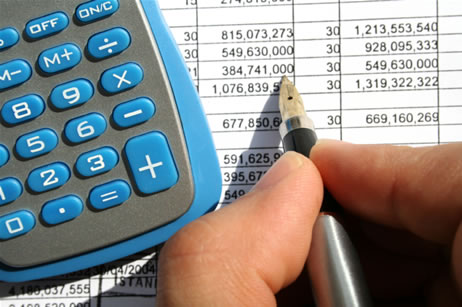Skopje, 25th September 2014 (MIA) – According to the Draft Budget for next year, support to the business sector and the living standard of the citizens continues through the significant allocated amount for capital investments and by increasing the salaries, pensions and social benefits.

This was stressed by Deputy Prime Minister and Minister of Finance, Zoran Stavreski explaining the 2015 Draft Budget of the Republic of Macedonia before the parliamentary Finances and Budget Committee, adding that the restrictive budget policy continues at the same time.
According to the Draft Budget, the revenues are projected at Denar 163,280 billion, expenditures are projected at Denar 181,777 billion and the budget deficit at 3.5% of GDP, which according to the Ministry, is a reasonable level, taking into account the number and magnitude of the projects to be financed, which will be enabled by the economic growth.
– Revenues are projected on the basis of low level of tax rates in the country, being important since thus we provide support to the business sector and make Macedonia further interesting to foreign investors, Stavreski said.
He went on that tax revenues, projected at Denar 88,955 billion account for the most to the revenues, whereby VAT share is the largest. Social benefits in 2015 are projected at Denar 48,717 billion.
According to Minister Stavreski, capital investments are the Budget’s development component, being aimed at investing in public infrastructure and they will mean strong support to the business sector, operations of enterprises and workers.
– This policy yielded good results in the past period. Construction industry experiences two-digit growth rates. It also drives the industry, i.e. large number of small- and medium-sized enterprises included in the working engagements of construction companies, thus driving the growth of Macedonian economy as a whole, Stavreski said.
Denar 21,209 billion is envisaged for capital investments, and in addition to this amount in the Draft Budget intended for capital investments, significant amount is also envisaged under the Programmes of the Public Enterprise for Roads, thus providing for construction of the motorways Miladinovci-Stip and Ohrid-Kicevo and realization of the programmes of the state-owned enterprises in the energy field, generating EUR 100 million in average.
– If all this is taken into account, it is a large investment cycle meaning support to the economy, Minister of Finance said.
Denar 3.4 billion from the Budget is envisaged for the highway Demir Kapija- Smokvica. In addition, funds from the World Bank amounting to EUR 150 million will be used for financing several regional road sections.
– As for the railway infrastructure, Denar 1,311 billion is envisaged, most out of which for completing the reconstruction of Corridor 1o, where several section will be repaired, thus improving the traffic safety and flow of passengers. In 2015, construction of railway tracks towards Bulgaria will continue through Macedonian Railways infrastructure, and the project for procurement of locomotives and wagons will be realized, Deputy Prime Minister Stavreski said.
Support amounting to Denar 2,015 billion is also provided for the utility infrastructure, i.e. for construction of the National Gas Pipeline System, construction of water supply and sewerage. EUR 49 million is envisaged for water supply and waste water drainage systems. Municipal Services Improvement Project will be realized with EUR 10 million.
More funds are envisaged for construction of TIDZ since, as Stavreski said, announcement of decisions of several foreign investors to carry out investments is in the final stage and therefore, the Government sets aside significant amount for completing the zones so as for investors to be able to realize their investments.
As for health sector, Denar 1.5 billion is envisaged for construction of public health institutions, being allocated from the Budget, while the other portion is from the Council of Europe Development Bank. As for education, child protection and sport, Denar 2,204 billion is intended for construction and reconstruction of primary and secondary schools, construction of kindergartens, school and sports halls, homes, universities, laboratory equipment and sports infrastructure. As regards agriculture, Denar 2,013 billion is envisaged for hydro systems and improvement of competitiveness of Macedonian agriculture for the purpose of its strengthening and higher export.
Multi-purpose Project Zletovica will be commenced with budget and credit funds in the amount of Denar 145 million. As for judiciary and the Prisons Reconstruction Project, Denar 335 million is envisaged, and within the reforms for protection of property and legal relations in 2015, the Project for Real Estate Cadastre will be completed.
As Stavreski explained, on the expenditure side, 4% more funds are planed for the current expenditures compared to the previous year due to the envisaged increase of pensions, salaries, social benefits and health care services.
– As for current expenditures, salaries will be higher by 4%, which will be realized with the October’s salary for all budget users. As for social transfers, being the second major category in the Budget, Denar 82,660 billion is envisaged, covering the envisaged increase of pensions by 5% for 30,660 users.
In addition, funds higher by 5% are envisaged for the social protection rights with the payment in June in 2015, Minister Stavreski said.
He went on that Denar 23,513 billion is envisaged for health protection, being an increase by Denar 1,300 billion compared to this year, i.e. for the health system for paying health care services to the end of improving the health of people.
– In 2015, as regards other goods and services, we will resume with the restrictive budget policy, Minister Stavreski pointed out.
He stressed that high amount for the agriculture is envisaged, whereby significant amount of funds is set aside for capital projects aimed at developing the rural areas.
Growth for next year is projected at 4%, which according to Minister Stavreski is realistic, and, as he said, it may be revised during the year, if the European economy stabilizes. Inflation will remain at low level, up to 2%.














